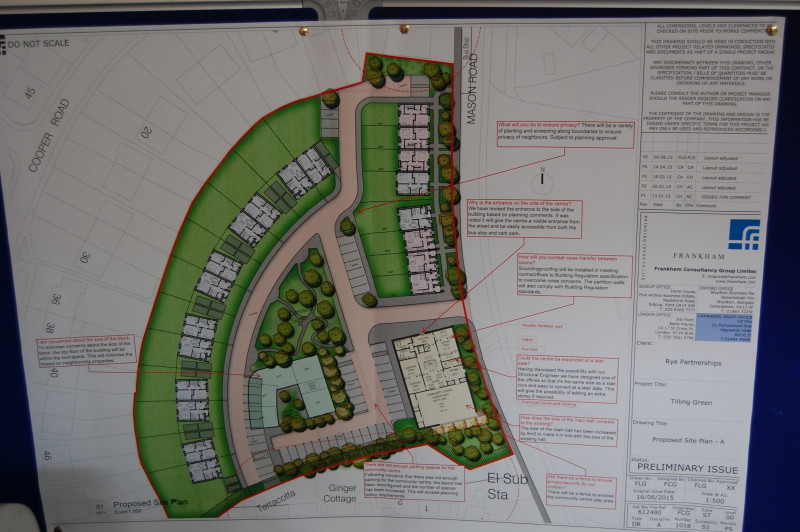The Town Council Planning Committee meeting last Monday (February 27) heard from Rother District Council’s (RDC) Development Manager for Strategy and Planning, Richard Wilson, who had been invited to speak and answer questions.
Rye Town Council (RTC) can comment on planning applications and recommend approval or refusal, but it is RDC which takes the actual decisions – and town councillors voiced various concerns about the process.
Cllr Justin Erswell expressed the council’s “general frustration” with the system, and committee chair Cllr Cheryl Creaser said there was need for much more dialogue, adding that “there is a big wall of non-information coming back”.
Rother Council receives about 2,000 planning applications per year, including some very large schemes (such as Valley Park off the Udimore Road, or the proposals for the Tilling Green school site) which lead to pressures on staff, said Richard Wilson, adding that there were a lot more housing proposals and “it was a very different climate now”.
He said there was a full team of planning officers, but all councils have been cutting staff in recent years as a result of cuts in the money from central government.
Ninety per cent of planning decisions are taken by the officers and only large or controversial decisions will automatically go to the committee, he said and the officers’ advice to the committee is confidential. Where there are differences between RTC and planning officers, these too could go to Rother’s Planning Committee, but this is not automatic and would need the intervention of one of our two local RDC councillors to arrange it.
Rother has recently introduced a process for the public to petition their Planning Committee on controversial decisions, and Dr Anthony Kimber (attending the meeting to report on Neighbourhood Plan issues) said he would be interested to see how the new system of petitions worked and what weight petitions would have.
Cllr Pat Hughes felt the town council was at a huge disadvantage as “there was no time when we can make a sensible intervention” without knowing what was going on.
Richard Wilson also said that 90 per cent of planning applications approved by RTC were also approved by RDC officers which, out of 60 RTC-approved applications in the last year, meant that only six were declined. However the RTC did not always know in advance that Rother councillors were being advised to reject their view and therefore would not have been able to use the RDC councillors for Rye to ask for the decision to be put before the whole planning committee.
Cllr Erswell made the point that RTC made decisions on the basis of being local, and having a detailed knowledge of Rye and the various unique conditions that apply to the town, yet these could be overruled by someone who did not know the area in the same way, and who possibly had never even been here. The Valley Park development was initially rejected by RTC and RDC partially on the grounds of insufficient infrastructure (schools, doctors etc) to support the increased population, but was granted on appeal with the predicted results of overcrowded primary school and other problems. How could this be avoided in future, he asked? He also pointed out that the online planning portal was difficult to navigate, badly organised, and clumsy, and others present in the public gallery who had made applications – or objected to them – made similar points about submitting or obtaining information to or from the portal.
Cllr Fiddimore asked how the management of development schemes could be improved. She cited Deadmans Lane as being an appalling example of poor site management where deliveries and storage of materials frequently caused the road to be obstructed or closed. Wilson said that they had no powers to control this.
The main thing Wilson said that he wanted to take away from the meeting was how to improve communications between Rye and the RDC.
Photos: Rye News library
Image Credits: Rother District Council .



